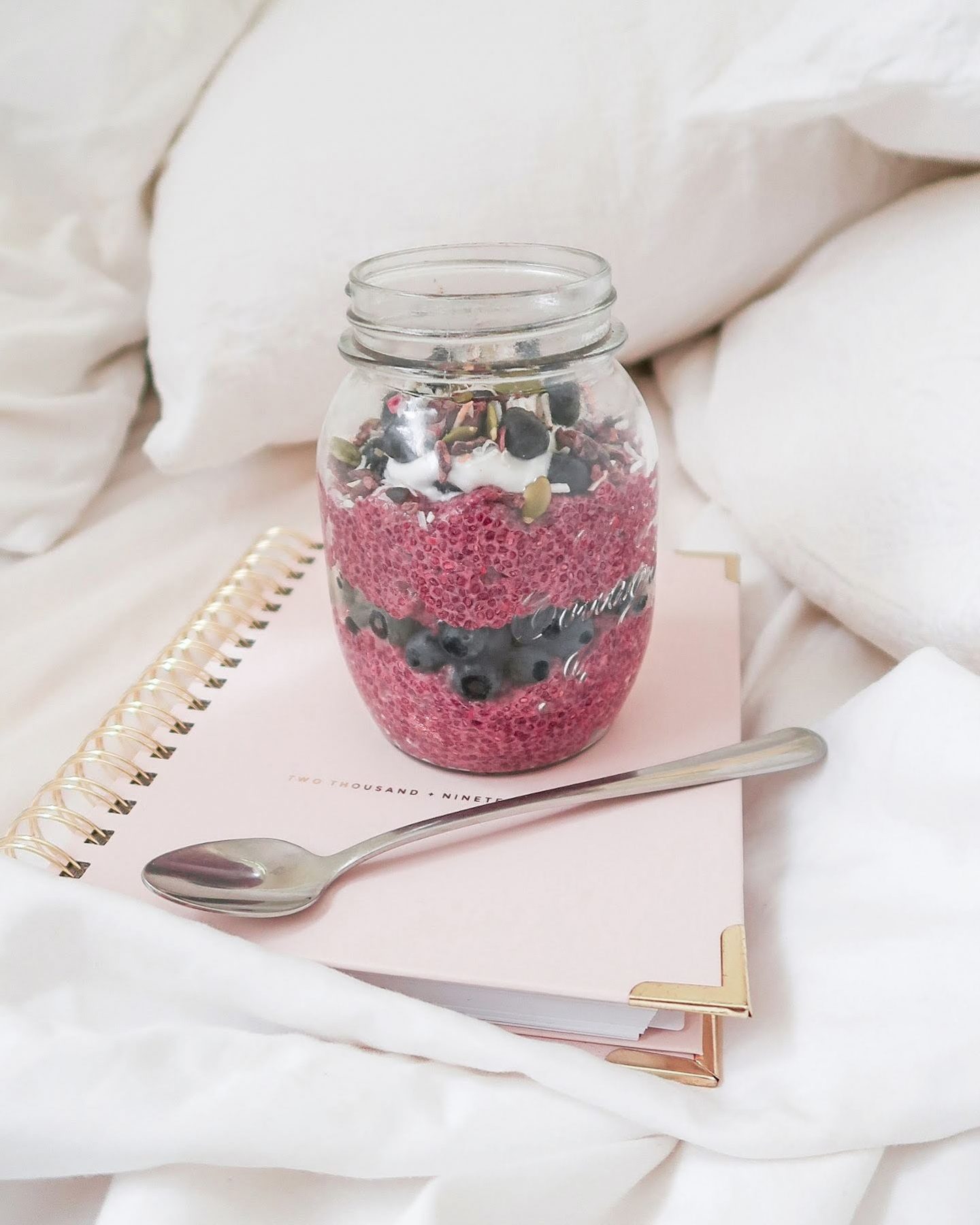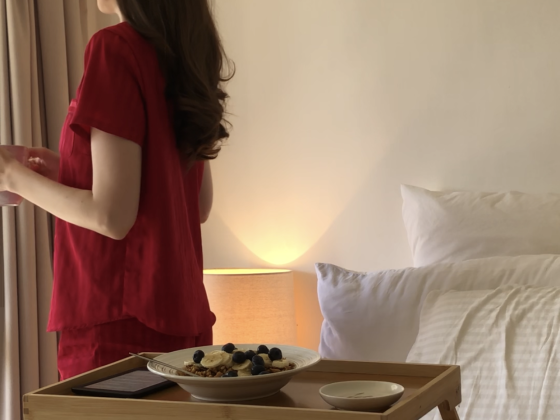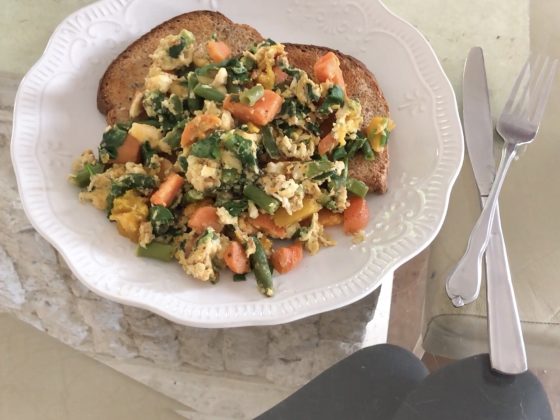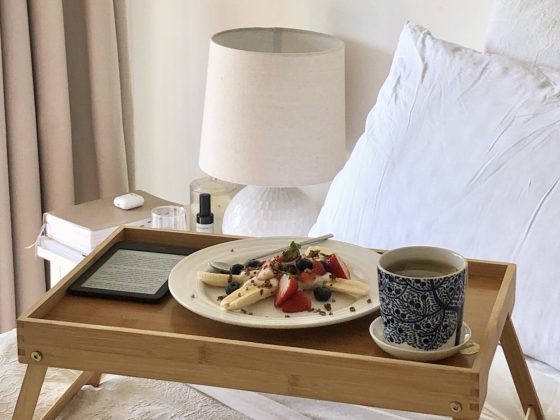

I don’t care if it’s cliché, but I love the inspiration and motivation that New Years’ often bring into our lives. For many people, the New Year is a time for getting settled back into a healthier routine (or starting one altogether). So, I thought I’d share some health tips to help you along your way!
You Don’t Have to Diet, Detox or Count Calories to be Healthy
My first health tip is to avoid restrictive dieting, detoxing and counting calories.
2020 is the year to give up any restrictive behaviours that aren’t medically necessary because they will most likely not benefit your health OR your relationship with food.
Dieting
Dieting involves cutting out food groups and/or eating a very low number of calories and there are a few problems with this…
Firstly, your body needs macronutrients (fats, carbohydrates and proteins) and micronutrients (vitamins and minerals) to function at its optimum level. Even for those that try to watch their weight, there are much better ways to do so, as cutting out these nutrients can even lead to struggling metabolic processes.
Secondly, your body requires a certain amount of calories per day JUST to function… Yep, that doesn’t even include all the activities we add onto it every day. That’s why severely restricting your calories can be so detrimental to your health, because your body needs those calories just to breathe, keep your heart beating, grow and repair cells and so much more.
Detoxing
As for detoxes, whilst they might sound like a great way to kickstart your health, they really aren’t necessary. In some cases, they can even be harmful and suppress detoxification pathways in the body. You heard that right, we have an in-built complex detoxification system that works every second of every day. Isn’t the human body amazing?! So, rather than reaching for those juice fasts, here are some ways you can support your body’s own natural detox (as seen on eatright.org):
- Stay hydrated
- Eat five to nine servings of fruit and vegetables per day.
- Consume dietary fiber each day from vegetables, fruits, nuts, seeds and whole grains to help maintain bowel regularity.
- Include cruciferous vegetables that support detoxification pathways (e.g. including broccoli and brussels sprouts, berries, artichokes, garlic, onions, leeks and green tea).
- Consume adequate amounts of lean protein, which is critical to maintaining optimum levels of glutathione, the body’s master detoxification enzyme.
- Eat naturally fermented foods (e.g. kefir, yoghurt, kimchi, sauerkraut) or take a high-quality probiotic to promote a healthy gut.
Counting Calories
Lastly, counting calories can often make us fixate on weight and numbers rather than how we feel on the inside. If you really need to know the caloric value of foods (e.g. when trying to lose/gain and get a sense of portion control), check out the app MyFitnessPal because it not only does all the work for you it also shows your daily macro- and micronutrient levels.
Severely restricting your calories can be detrimental to your health, because your body needs those calories just to breathe, keep your heart beating, grow and repair cells and so much more.
Aim For a Balanced Diet Rich in Whole Foods
For those of you who aren’t sure what I mean by wholefoods, I’m just referring to foods that haven’t really changed much from their natural state. This includes fruits or vegetables whether they’re fresh, frozen or canned; wholegrains like brown rice, seeds, nuts, legumes, eggs, fish, lean meat.
When it comes to the word ‘balanced’ I mean a balance of all three macronutrients: carbohydrates, protein and fats. Like I hinted at earlier, all three of these macronutrients do different but equally important things for the body and consumption of all of them help you reach a wider variety of micronutrients.
However, within these categories some sources are better than others. For example, brown rice is a carbohydrate and cake contains carbohydrates – although there is room for both of these carbohydrates within the diet, the brown rice obviously contains more nutrients and should be consumed more often.
So, with all that in mind, when you cook your meals, try to aim for a mix of complex carbohydrates, lean good quality protein and healthy fats such as monounsaturated fats. Typically if you’re eating whole foods you will be eating these more nutritious counterparts anyways!
There is No One Perfect Diet For Everyone
We are all so completely different to one another and our dietary requirements will reflect this. Some people may find that they feel better when they eat less of a certain food and eat more of a different kind or that they feel more satisfied eating a diet that’s slightly higher in carbohydrates, for example. The key is to listen to YOUR body and see how different foods affect your digestion, your energy and your moods.
Everything in Moderation
I’m sure you’ve heard this one before, but it’s just so true. Whenever I hear people talk about ‘getting back on the bandwagon’ it’s usually accompanied by sighs and dread. A lot of the time, when people hop back on the healthy train they feel as though they’re never allowed to eat junk food again. Well, I’m here to tell you that’s not true. For many people, as soon as strict restrictions come in, so do unhealthy relationships with food.
Take a step back, feed your body nutritious food because you want it to function as well as it can, but also leave room to enjoy the not-so-healthy food because who wants to live in a world without chocolate?! I don’t eat healthy 100% of the time and that’s perfectly ok. A healthy lifestyle should not only make you healthy, it should also make you happy.
Do It For The Right Reasons
Unfortunately, many people stumble into their health journey because they hate their bodies; hate the way it looks and hate the way they feel. Although it may drive you to take better care of yourself, the underlying reason is something that needs attention. No matter what our body looks like or what illness/trauma we have experienced in the past, our bodies are amazing.
It’s times like this, I wished they taught nutrition science and physiology in schools so everyone can see how incredible our bodies really are and how much they do to keep us alive. You would be in awe.
From now on, anytime you criticise your body say ‘thankyou for keeping me alive’ or ‘thankyou for allowing me to walk’ or ‘thankyou for allowing me to laugh’ (or get creative and make up your own). The perception we have on our own bodies plays a huge part in our approach to healthy living. When we’re upset over our bodies, healthy eating and exercise becomes a chore, something we don’t enjoy. On the flipside, when we find gratitude for our bodies, healthy eating and exercise becomes something we genuinely enjoy as a way to show respect towards our bodies.
Healthy Looks Different On Everyone
This health tip is a gentle reminder that one healthy body can look entirely different to another healthy body. Again, we are all so different, so please, please, do not compare yourself to someone you see on instagram or a #fitspo girl that you look up to. Use them for inspiration, sure, but don’t fixate on their appearance because your ‘healthy’ may look entirely different and it will be perfect for YOU. Less focus on the external stuff and more focus on how you feel.
Naturally Incorporate Movement into Your Lifestyle
Exercising doesn’t have to be this big scary thing. You don’t have to workout for hours on end and you don’t even have to go to a gym. Just start by incorporating more movement naturally in your day-to-day life by walking more, taking the stairs, taking your dog for a walk or doing some exercises while you wait for food to cook.
Then add to this by finding some sort of workout that you enjoy. There are so many different forms of exercise, so there is bound to be something that you enjoy and something that makes you feel good.
There’s even plenty of great at-home workouts you can do here on youtube, my favourite workout videos are by the Tone It Up girls and Pamela Reif, so definitely check them out if you haven’t already.
A Healthy Mind is Just as Important as a Healthy Body
A lot of our time and attention tends to go towards improving our physical health, but I would argue that our mental health is just as important. There are several different ways you can work on improving your mental health, here are four of my faves:
- Improve your relationship with food: a healthy relationship with food removes negative emotions (e.g. guilt, frustration) when it comes to food. Everything in moderation.
- Stress management: stay organised as best you can, know when to rest, practice deep breathing, and do something everyday just for you, even if it’s only little!
- Surround yourself with uplifting people and set boundaries with those that don’t make you feel good about yourself.
- Keep a gratitude journal
Baby Steps
It doesn’t have to be all or nothing. Personally, I find the best way to create and maintain healthy and sustainable habits is by taking baby steps. As I’m sure you all know, habits are formed through consistency. Depending on your personality, if you go straight out of the gate you may find it hard to maintain that speed everyday whereas taking smaller and more realistic steps can be more manageable in helping you to create new habits.
Stay hydrated
Ok, so this is a particularly obvious one, but of course it had to make the list, a) because it’s detrimental to good health and b) so many of us don’t follow up on it (guilty!). I’ve been particularly bad for remembering to drink water, so here are the measures I have to take to ensure I stay hydrated: carry a water bottle with me at all times, make a habit of drinking a glass of water first thing in the morning, add fruit to water to make the taste more appealing and drink it from cute glass or bottle because if you’re as pathetic as me that totally works ha!
Get Enough Sleep
Another kind of obvious one, I know, but again, it’s really important. Research has shown that sleep has critical roles in immune function, metabolism, memory, learning and other vital functions. Although there isn’t a set amount of hours you should sleep, try to aim for about 7-8 hours if you can, some people need more and others need less but that’s a good basis to aim for.
Create a Schedule
To be able to incorporate nutritious meals, rest and exercise into your lifestyle, I would encourage you to create a schedule. Organise a day for groceries or free up a moment in your day for a walk outdoors. You may even find that you need to reconsider your priorities and do some re-organising. At the end of the day, if you don’t make the time, it’s not going to happen.
Refresh your motivation daily
Even the most motivated people have days where they feel unmotivated. Motivation isn’t some inherent trait where we’re either motivated or unmotivated and that’s it. The key is to find ways in which you can inspire yourself every day. Here are some of my fave examples:
- Setting goals and putting them up somewhere I can see
- Tracking habits
- Remind myself every morning of why I am trying to achieve the goal/s.
- Following people on social media that inspire me
- Researching easy and nutritious recipes
- Educating myself
Bring on 2020!! The year where you’re the happiest and healthiest version of YOU.
Until then! x











2 comments
Thank you for your sharing. I am worried that I lack creative ideas. It is your article that makes me full of hope. Thank you. But, I have a question, can you help me?
Dear Chante, would love to see more of your posts routinely.Keep posting on youtube also.Thanks for dispelling the myths.